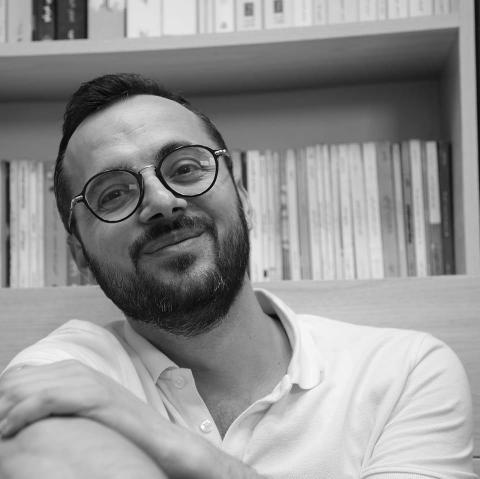Interview with longlisted author Sumar Shihada
17/02/2025

When did you begin writing My Life Has Just Begun and where did the inspiration for it come from?
I started writing in August 2022. The inspiration came from the accumulation of topics I had tackled in the novels The Abandoning and The Houses of Yesterday. I felt that I hadn’t used up all the words that I wanted to use to talk about contemporary Syria, with all the consequences of the war, or the civil fighting, including divisions within the individual and society and the country. I mean, my thoughts were guided by topics that had long preoccupied me. What directly inspired me were personal experiences that that I lived through. Events that were happening in Syria under Bashar Al-Assad’s rule made me contemplate our fate as we sought refuge outside the country rather than in it. Of course, there was nothing left to seek refuge in after the regime had completely devoured the state – until they both fell together. Before that I thought of the people trapped in Syria in an atmosphere plagued by crime and the complete absence of justice. Thus, I wrote about the weight of countless murders, like the killing of a successful doctor or a child. Syria is a country plagued by murder, destroyed by the regime. This is what inspired me. I took it upon myself because I knew it and lived it. And because the murder of innocent people has always exhausted my conscience.
Did the novel take long to write and where were you when you finished it?
It took seven months, but it was almost daily work. I was living in Latakia during the time of writing. I had to write outside the house at times, but most of it was written in front of a window overlooking the sea at dawn and in the early morning.
Do you have writing rituals?
I treat writing as a day job; there are no elaborate rituals. I simply make sure to clear my mind in the morning and write once I wake up for a few hours at home. For My Life Has Just Begun, the earthquake in February 2023 forced me out of the house and the power outages led me to write in a nearby hospital cafeteria where electricity was available in the early morning hours. Even though I was not comfortable, I was determined to complete the novel because it was very clear in my mind from the beginning. I could not risk losing it to life’s difficulties. When working on a novel, I make sure to write every morning regardless of the circumstances. I do not remember that anything hindered me from continuing to write once inspiration had spread its wings. Rituals are important, but I have always written through difficult circumstances.
What is your next literary project after this novel?
I wrote a dystopian novel that will be published this year. I had written it before the fall of the regime. It emerged from the Syria that once existed, but its atmosphere is not that of Syria, because the world had become a dystopian one which does not recognize people outside the values of consumption or killing. But I intend to abandon the world of social novels entangled with politics, at least for now. In fact, I intended to do this before the Assad regime fell, when hope for change had died. It seemed to those who lived under that regime that it had closed off history. Now, I do not know. I must think about it. I am not sure. The pressing criteria that shaped many of my writing choices no longer exist.
